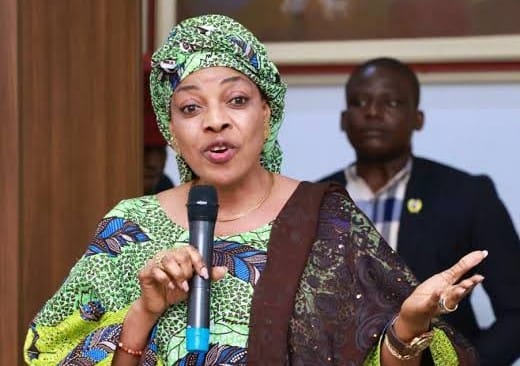Gloria Akobundu, the Chief Executive Officer of the African Union Development Agency-New Partnership for Africa’s Development (AUDA-NEPAD) Nigeria, has announced the launch of a new smallholder farmers initiative aimed at bolstering local agricultural production. The first phase of the initiative will benefit seven Nigerian states: Nassarawa, Cross River, Imo, Abia, Kano, and Kebbi.
Akobundu made this announcement during a stakeholders’ engagement on the Mainstreaming of the African Union Comprehensive African Agricultural Development Programme (CAADP) in Abuja. The initiative is designed to address food supply challenges across the country while aligning with AUDA-NEPAD’s broader Agenda 2063, which focuses on supporting African nations through resource mobilization and technical assistance.
In her address, Akobundu emphasized the need for strong collaboration and resource mobilization to meet Africa’s agricultural and environmental goals. She underscored the importance of sustained partnerships to effectively implement CAADP strategies, particularly in scaling up land restoration and ecosystem management efforts. Akobundu also acknowledged the vital role of state coordinators and the African Union Development Agency in ensuring the success of the initiative, calling for continued commitment and support from both state and local governments.
Benjamin Uche, Programme Officer for Climate Resilience and Project Focal Point at AUDA-NEPAD Continental, South Africa, highlighted the initiative’s focus on empowering smallholder farmers to combat the impacts of climate change, food insecurity, and unemployment. Uche noted that funding will be allocated to the seven states to address these challenges, with plans to expand the project to additional states as more financing becomes available.
“The immediate disbursement of funds will facilitate prompt project implementation aimed at improving food security and supporting smallholder farmers throughout Nigeria,” Uche stated.
Munira Abdullahi, Nasarawa State’s Commissioner for Finance, Budget, and Planning, also spoke at the event, providing an update on the state’s agricultural advancements. She praised Governor Sule Abdullahi’s commitment to sustainable agriculture, citing the cultivation of 10,000 hectares of land, with 5,000 hectares already prepared for harvest. Key crops being focused on include rice, maize, and sesame, all aimed at enhancing the livelihoods of smallholder farmers.
In a related development, the Federal Government of Nigeria has announced plans to boost cocoa production to 500,000 metric tonnes by 2025, up from the 340,000 tonnes recorded in 2022. This announcement was made by Ambassador Nura Rimi, Permanent Secretary of the Federal Ministry of Industry, Trade, and Investments, during the Pre-National Trade Dialogue Series meeting in Abuja. The event, themed “The State of Nigeria’s Global Trade Ecosystem: Bridging the Gaps for a Renewed Programme,” highlighted the strategic role of cocoa in Nigeria’s economic growth.
